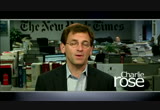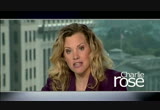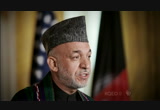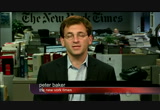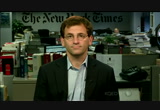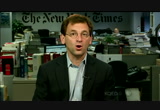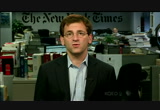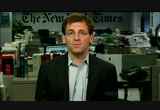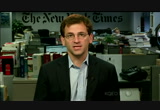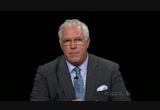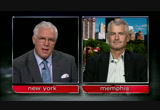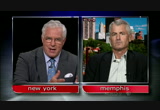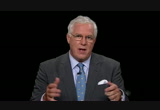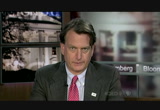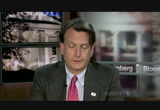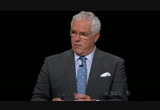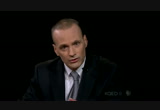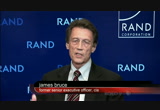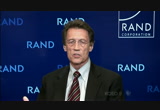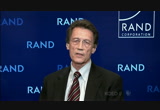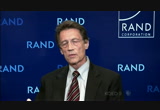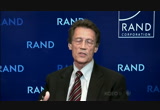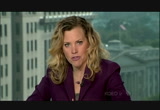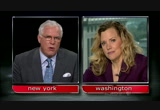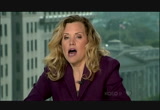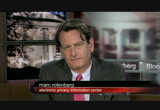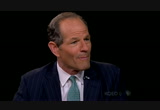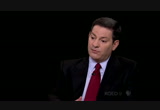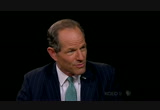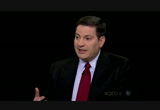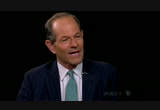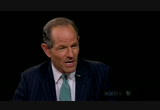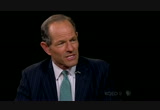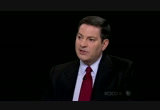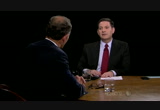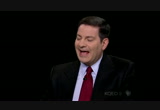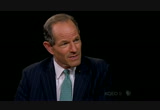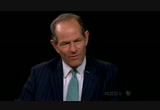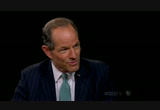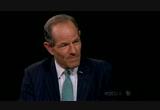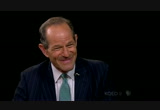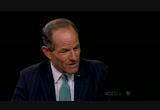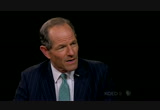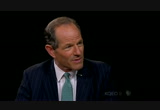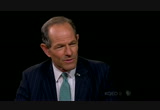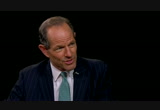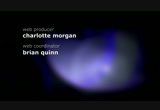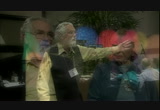tv Charlie Rose PBS July 10, 2013 12:00pm-1:01pm PDT
12:00 pm
welcome to the program. i'm john miller. charlie rose is on assignment. we begin tonight with a look at recent events in the middle east and afghanistan and the obama administration's response. mark halperin is joined by andrea mitchell of nbc news and peter baker of the "new york times." >> look, i think the overriding priority for the obama national security team is really one of stability, trying to keep the relationship from rupturing and trying to keep violence from spreading even worse than it has in the streets of cairo. you don't see them out there banging the drums and denouncing with full fury what's happening there. you don't see them criticizing even president morsi with full... either. they're trying very much to play a quiet game. president obama hasn't said one word in public about this yet. he's issued only a written statement expressing deep disappointment. his spokesman has called for calm and condemned violence. >> we continue tonight with the ongoing saga of n.s.a. leaker
12:01 pm
edward snowden. i'll be talking with people on both sides of that debate from the intelligence community to privacy advocates. philip mudd, rotenberg, jesselyn radack and timothy murphy. >> and what has been revealed by mr. snowden violates at least two federal laws governing surveillance. section 215 of the patriot act. but also the constitution. which nobody has brought up. what authorizes the press to do what it does? the first amendment. and i've represented n.s.a. whistle blower thomas drake. he went through every proper internal channel. some of your other guests talked about that's what a real whistle blower should do. he did. not only did that not achieve anything, but the government turned around and prosecuted him for espionage. >> and we conclude with former new york governor elliott spitzer. >> just tell me personally what was what were the events that
12:02 pm
led up to that that caused you to hire prostitutes and to risk your... and to risk the job that you had worked so hard to get? from a personal point of view that led up to that. >> i don't think i can shed light on what motivations other than to acknowledge that we have within us all drives, urges which should be tempered, controlled, modulated, held in check. that i did not. i don't know if i can or should be more specific than that. that is what led to what was obviously a violation of responsibility, oath, loyalty. many terms could apply to it. >> egypt, the n.s.a. and elliott spitzer next. >> funding for charlie rose was provided by the following.
12:03 pm
12:04 pm
there is pressure on president obama. u.s. law for bids providing support for leaders of a military coups. yesterday the white house signaled they wouldn't be cutting off the $1.5 billion of aid. president morsi will not be missed in washington but there are concerns about the precedent that has been set. reassuringly egypt's new interim president has promise ed there will be a new parliament, a new president and a constitution all within six months. this comes though against the back drop of more than 50 islamist protestors being killed by the military on monday. another problem for the administration overseas, afghanistan. reports suggest including starting in the "new york times" on tuesday that president obama is frustrated now with president karzai and is considering a so-called zero option. that would mean a full withdrawal of all american troops by the end of 2014 more than has been anticipated. no forces left there. joining me from washington to talk about these two very big issues. peter baker the white house from washingtonr tew
12:05 pm
andrea mitchell the chief foreign afirs correspondent for nbc news and the host of the daily must-watch program andrea mitchell reports on m.s.-nbc and i am pleased to have them both here. andrea, let me start with you. on egypt the administration is facing some criticism for the policy that it's had. just take us through a little bit of the history and where you think the tougher choices have been in the period from the time in which it was clear that morsi was... may be forced out in the military decided that they were going to play an active role in getting him out and ushering in a new government. what's been the history there and again the choices the administration has made? >> i think you have to take it back a little bit farther because it was the decision to stick with morsi over these many months when he was already canceling the constitutional rights, closing n.g.o. offices. the two groups of democratic overseers who are mandated by
12:06 pm
congress and they included in one case the son of a cabinet officer in the administration arrested or at least indicted and forced to flee the country. so know was already the moment that many say the administration should have used its leverage. a billion-and-a-half dollars in aid. all of its influence within the i.m.f. desperately needed economic support by egypt to try to pressure morsi to be more inclusive. to be more pluralistic. it was all the way along that routee which should have been the clue to the administration that they could not stick with them. already as you know they're in the streets have been protestors, anti-morsi protesters who blame ann patterson, unfairly many say, but blame her, the ambassador, the u.s. ambassador to egypt and a very, very senior diplomat for being too supportive of morsi and not putting enough pressure on him to do something that would have forestalled what this
12:07 pm
is, a coups for all intents and purposes even though the administration does not want to acknowledge that. >> we've seen a lot of activity, a lot of decisions for the administration around the world. there's a new national security team, a new relatively new defense secretary, a relatively new secretary of state. new national security team at the white house. what do you know about how that team has approached this? what have been their policies, priorities? what if any debates do you know about leading up to the decisions about how to deal with this situation. >> the overriding priority for the obama national security team is one of stability, trying to keep the relationship from rupturing and trying to keep violence from spreading even worse than it has in the streets of cairo. you don't see them out there banging the drums and denouncing with full furry what's happened there. you don't see them criticizing even president morsi with full vigor either. they're trying very much to play a quiet game. president obama hasn't said one word in public about this yet.
12:08 pm
he's issued only a written statement expressing deep disappointment. his spokesman has called for calm and condemned violence. so they're trying to play a quiet, diplomatic game, one that is not raising the temperature but trying to keep egypt in the fold. this is a very important country obviously as andrea said to the united states critical to the peace with israel, the 30-year peace that they've enjoyed there and critical that any future resolution, possible resolution, of disputes with the palestinians that is so important. secretary of state john kerry. >> andrea, what do we know about countries in the region particularly israel and whether their view of what the u.s. should do and what should be done differs at all from the current american policy? >> they're i think quite relieved in israel about the military takeover because what they want is stability. they're concerned about the sign eye and peace on their border. and the fact that morsi was agreeing to continue the peace treaty with israel was one of
12:09 pm
the main arguments that the administration had for continuing that relationship and for supporting morsi. but the military is a much better option as far as israel is concerned. not so much, of course, from assad which you're hearing from the assad regime is criticism of the military takeover which is only more ironic given all the circumstances next door in syria. >> peter, we have a president who is a thoughtful constitutional law professor who thinks a lot about big issues and big themes. democratically elected government overthrown in part by the military. do you have the sense from listening to jay carney at the daily briefing and as you said not hearing from the president directly but from knowing how he thinks about things like this, do you have a sense that this was a struggle for him in the administration to accept in effect a coups even if they're not calling it that? >> yeah, it's interesting, isn't it? only in washington would there be a debate about whether a coups is really a coups or not. right? there is a law that specifically says with very little a.m. bic
12:10 pm
out that the united states cannot provide aid to country where a duly elected leader has been overthrown by a coups in the military. it seems to fit the facts of the situation here. the egyptians say this isn't a coups because there were millions of people in the streets. that makes it not so much a coups as much as a revolution that the military executed their behalf in effect. there are no afc terrifics in the american law on aid. it doesn't say a military coups unless supported by the people. there's no flexibility for the president here. it doesn't give him unlike a lot of other laws that congress passes any waiver of authority. they're simply slow walking determination by the lawyers of whether this constitutes a military coups and in effect what they're saying to the egyptian authorities right now is we'll decide whether this is a coups in part on the basis of what you're doing now not just what happened last week. if you continue to round people up and continue to fire on people on the streets, if you have a longer-term transition to the civilian authority and they did release a plan for a six
12:11 pm
month transition, then those will factor in to our determination as to whether this is a coups. they're trying to use there this as ledger to the extent that they can. >> on egypt in terms of the economy, that is obviously a big source of the concern. much of the criticism of the previous government that was taken out was that things weren't getting better. are there sources of strength in the egyptian economy right now? is there a possibility with some stability that there could be a turn-around there and make lot things better? >> they would really have to be evidence of stability. the military has its reach into the economy. they have a lot of economic clout there in the way that they handle almost in a chinese way where military actually have private-sector roles. but that said the big number is tourively and tourism is absolutely devastated in egypt because of everything that has happened. you're going to see now what is going to happen with the muslim brotherhood.
12:12 pm
they're not going to go quietly into the night. if they are excluded from the political process they will probably resort to real violence and guerilla war against whatever transitional government and new constitutional government is created if they're even that lucky and that they are able to hold elections peacefully. so they have not begun to resolve the political difficulties in egypt. the economy will not return until they do that. >> i want to ask you about the story in your paper today by two of your colleagues about afghanistan. tell people what the story says and why you think the significance of it is going forward about american troop levels there. >> exactly. on the... another part of the of the foreign agenda is a afghan war. president obama previously said he wants to wind down american involvement there by the end of 2014 and pull out combat troops but the idea has been we would always leave some troops behind as the end of 2014 as some sort
12:13 pm
of stabilization, training, quick reaction to any kind of al qaeda presence, that kind of thing. somewhere in the order of 10,000 troops something like that is what people have talked about. now they're increasingly is talk that perhaps there be a zero option. that means move out entirely. leave nobody behind. this has always been on the table but there does seem to be some sense according to my colleagues that frustration with president karzai has led them to take this more seriously. maybe it's time to disentangle militarily from afghanistan altogether, something that would cause some concern among people who wonder whether, you know, the long war there has gotten to the point where it's sufficient for american troops to be gone entirely. >> andrea, there are some great things about being president and some things that if i were president would frustrate me a little by. dealing with president karzai seems like not the best part of the job. >> not the fun part of the job. you know, in fact, he had sent john kerry quietly as an emissary, sometimes publicly and sometimes covertly when he was
12:14 pm
chairman of the foreign relations committee to deal with karzai. kerry has a good touch with karzai as i witnessed when i was traveling with him. but karzai is not easy. there's an inside and an outside game here. part of that story in the "new york times" is that we are seriously considering the zero option. no denials from the white house or the state department that it's one of the options that state has on the table. it's a signal to karzai that if you don't agree to a status of forces agreement like we tried to get and failed to get actually with maliki in iraq. if you don't agree with that and one that immunizes the remaining u.s. troops, we will then be pulling out. it's a big, strong signal to karzai we're getting fed up. >> what were you going to say, peter? >> karzai's point of view. he's frustrated with president obama and the americans is his suspicions that the americans want to negotiate a separate peace with the taliban. our interests are not same as his at this point. the american interest is to disengage and to get out.
12:15 pm
and the taliban is no longer viewed necessarily in the same way as al qaeda, as a threat to the united states. if the taliban wants to parts tonight in government the united states is saying fine there could be some accommodation. karzai has to stay there in kabul and his successor after next year's election and live with whatever result comes out of it. they have very different points of view, president obama and president karzai, for good reasons. >> go ahead, andrea. one of the big tests now is whether karzai will permit the first freely handed over afghan government. it's not clear. he says he will. but we don't see what's going to happen in terms of the candidates and another leader emerging. that's one issue. the other issue is is that karzai has been himself quietly dealing with some elements in the taliban all along. it's just something that no one wants to confirm. >> if there was to be a residual force for either of you, how big would it be and what would its mission be beyond this cut-off of 14?
12:16 pm
>> well, clearly it would be to secure areas in kabul and to deal with possible al qaeda, you know, outbreaks and anti-terrorism. it would be a couple of thousand similar to what we left behind in baghdad. >> people, finally this issue question of course has been a long-running issue where the president is thinking about legacy to some extent. is there within the administration the sense that there is a best case here that this thing could end and the president would be proud to feel like history would say he would made the right moves on afghanistan in this time in office. >> i think it's a big selling point for president obama to leave office to say i ended the war in iraq and afghanistan. those are big accomplishments by any measure at least looking at it that way. the question is whether or not you leave behind a cub tree that falls apart, that becomes a problem all over again that
12:17 pm
requires americans to return in some fashion or another. it's not as easy as simply saying, okay, we're coming home at the end of 2014. you have to be careful that what you leave behind is is something that can stand on its own. that's the open question. >> andrea mitchell and peter baker, thanks to you both for joining us. >> thanks for having us. my pleasure. we'll be back in just a minute. edward sphoa snowden the former n.s.a. contractor remains in limbo. he's believed to be in the transit area of the moscow airport. so far three latin american countries have offered him asylum: venezuela, nicaragua and bow live i can't remember i can't. the debates over his actions and the n.s.a.'s surveillance programs and over the ball and between security and privacy continue. joining me now from memphis is the former deputy director of national security at the f.b.i. and of the counterterrorism center at the c.i.a.
12:18 pm
in washington d.c., mark, the executive director of the electronic privacy information center, the group that filed a petition at the supreme court today challenging the foreign intelligence surveillance court's authority to approve collection of phone records. jesselyn radack is the director of national security and human rights at the government accountability project. also james imreus, a senior political scientist at rand corporation. he was formally a senior executive officer at the c.i.a. here in new york is timothy murphy, former deputy director of the f.b.i. i'm pleased to have all of them on this program. let's start with you, phil mudd because i know that your time is short and you're going to have to leave us before all the other guests. one of the questions that mark and jesselyn will raise as they bring these court challenges is is there really a need for a government agency like the n.s.a. to collect every phone
12:19 pm
call made, every telephone number dialed and received across the entire united states and call that in a court order possibly relevant to a terrorist investigation. how exactly does that work to somebody who needs an explanation? >> i think you should take terrorism out of the question. in the 21st century whether you're looking at organized crime, gang networks or terrorists, you're looking at people who leave an increasingly digital trail just like i leave everyday. a.t.m.s, phone emails, if you want to understand the network ornd r around a conspiracy or a potential conspiracy it's not hard to access that network without the digital trail. >> the argument i guess phil is once that trail is start and you have your bad guy suspect terrorist sierp crook, whoever it is, you start with that and then you figure out how to get those records after you have your starting point rather than just collect everything.
12:20 pm
that seems to be the counterargument to the massive vacuuming of the digit trail. >> i suppose so. you're also going to have questions about technical issues like storage. for example, if i'm sitting at a threat table and somebody by the name of john doe comes up in the threat scope i'm not to want to know not only what he's doing today but what he was doing a year ago, two years ago. i want to draw a picture of a spider web around the spider in the middle of the network so i understand everything he was up to going back potentially several years. >> phil mudd, i know that you have another appointment and you're shifting off to that. sorry to lose you in that way. thanks for joining us and real he'll setting the baseline from an analyst's standpoint in the age of terror what all this is about. now, mark rotenberg, you filed suit in supreme court today against one of these core programs. that's the court order asking for every phone number dimed
12:21 pm
from verizon on a rolling basis. tell me what you examine and what that order is is asking for. >> well, the key point we've raised in our complaint to the supreme court is that there was no legal basis for the foreign intelligence surveillance cores to require verizon to provide all the call detail records on all of its customers on an ongoing basis. we simply don't believe that congress gief the court that authority. if we are correct on this point, i think we are, then that order has to be vacated. the program at least that aspect of the program has to be suspended. >> it's a particularly interesting issue for the supreme court. because this past term the court considered f.i.s.a. misuse when no one was able to present evidence as to the possibility that such misuse had occurred. without that evidence, the court ruled narrowly 5-4 against the petitioners that the case could
12:22 pm
not go forward. we have something in our petition that did not exist in that case. that's the actual text of the order. the court has the opportunity now to look at the order that was signed by that judge and make a determination. was it legal? if it wasn't legal, the program has to be suspended much. >> and the argument from the other side would be, well, this is access to met a data that would be used on a case-by-case basis not access to actual dmaims or u.s. persons or something that would be considered privacy. the argument would be by its sheer volume it gives anonimity. you don't buy that? >> let me say two things. first of all we spent a lot of time in our position describing the scope of the met a data using the actual terms that the court had used when it told verizon to provide this information. i think people who have the opportunity to look at that text will reach the same conclusion we did which is extraordinary.
12:23 pm
i mean it's unprecedented. to imagine that so much information could be providedded on all customers engaged in solely domestic communications. but let me make a second point which is that the government may have an argument that it needs the authority to do this. and that debate could take place. but that by itself is not a justification for continuing the program. in other words, if congress didn't create the legal authority for the government to do what it's currently doing, then the government has to pause. it has to come back to congress and the public and make that case. i think that would be a great debate. i think we should have that debate. i think that's the debate that the president has proposed. >> tim murphy, former deputy director of the f.b.i., as somebody who has been in the room and the strategic information and operation center during a terrorist threat crisis situation, a., does that order
12:24 pm
seem legal and does it seem necessary? >> i mean, people would ask how do you use that much data? >> two things. one legal i think that we had to have this debate on the difference in the balance between the civil liberties and privacy and what we need in intelligence circles and law enforcement to actually keep this country safe. not go back to the days where we just weren't connecting the dots and doing the things we need to do, but i do think there's... i believe in the debates but i think there's a danger in stopping the collection at this point. i mean they've had some dekass fied cases that they've season the american people and that they've season congress that this program has helped protect this country. it has helped stop terrorist attacks their crash. there's a great danger i believe in stopping this program. i don't disagree that there shouldn't be a debate. that happened if you look back with the deputy attorney general and the director of the f.b.i.
12:25 pm
they certainly weighed in and changed the course when this was first, you know, brought out and put across government and the department of justice understood the scope of this program ss to what was happening under the prior administration. they stood up and changed the program. >> the question is everybody seems to be agreeing to some extent with mark rotenberg saying it's time to bring this out for a discussion with the american people. why did it have to all be secret? why didn't this debate happen first? >> obviously it's a very good question but the point is that in intelligence we're in the process of evolving over time. as you go back, you see intelligence collected years ago. there's been an evolution. phil mudd used the expression digital footprint. this is a whole new concept. i think there is an exaggerated understanding about what n.s.a. collects and what a lot of other intelligence agencies collect. the problem is really more limited information than having
12:26 pm
too much information. the question of whether or not there should be a debate i highly agree. there really ought to be a debate. i don't think there's much of a debate at least in my mind and i'm not a lawyer about whether or not the government has the opportunity to do what it's doing. these are legal programs that have been fully authorized in law. these are programs that are subject so a considerable amount of oversight. so we can have a debate about whether or not the government should have this authority. i think that's probably where the debate will go. but in the end, it seems to me what you really have to decide is whether or not this country is going to have the kind of intelligence capabilities and needs to provide the protection that the american people want and deserve. if we are going to have good information to provide decision advantage to american policy makers we just have to have some capability to collect intelligence against those who would want to harm us. >> i read your piece in studies in intelligence that said and it was an extensive piece on the
12:27 pm
proliferation of leaks, the use that our adversaries make of leaks, the increasing danger of leaks to the intelligence community but you write in one part -- then i want to get to jesselyn to react to this -- government officials, journalists and publishers who are found to be in possession of documentary classified intelligence should also be prosecutorred under the federal law for the possession of stolen government property. on the one hand it's good it got because because it would fuel a discussion. on the other hand, do you believe edward snowden should be in jail and so should be the reporters that published this? that's a bold statement. >> well, there's obviously room for discussion and debate on what kind of legal protections extend to publishing companies and journalists who claim the right or presume the right that they can publish classified information. that's not a right that has ever been established in law.
12:28 pm
there's no constitutional basis really for saying that anybody has the right to public classified information. what we do know is that it is government property. it was establish in the morrison case that when classified information is leaked to people who are not authorized to have it, they refer to that as unauthorized disclosures, then those who are in possession of classified material have no authority to have it. the question is are they in violation of the law? here's where we can get into a good debate about what the law covers and what it does not. in my view i believe our current thsh does really part of the argument, yes, let's have a public conversation on this. my view is that the current statutory protections for government intelligence collection are inadequate. we believe we need to have a comprehensive statute that addresses the issue of unauthorized disclosures. right now we don't have that. when government officials look to some legal framework to help them deal with this issue of
12:29 pm
unauthorized disclosures, by the way the people who should not have them include al qaeda and terrorist organizations and others who are threating to do harm and do do harm. what sort of legal protections does the government require to be able to do this? and the issue, it seems to me, is how to provide that. so part of this conversation, part of this national dialogue that we have shouldn't just be about the issue of privacy. it should also be about the added measures that the yidz government requires in order to protect the capabilities... to provide the intelligence it needs. i'm not talking about all leaks of classified information. what i'm talking about is the kind of classified information that does extraordinary damage to the capabilities that this country has to conduct intelligence and frankly to conduct war-time operations and diplomacies. >> what do you glean from what you're hearing here?
12:30 pm
>> what i'm hearing is a desire to criminalize whistle blowing and criminalize journalism. in terms of statutory authority, there are at least a dozen different laws that could be used specifically for the unauthorized disclosure of classified information. but you cannot properly classify something that is illegal. what has been revealed by mr. snowden viements at least two federal laws governing surveillance, f.i.s.a. and section 215 of the patriot act. but also the constitution. which nobody has brought up. what authorizes the press to do what it does? the first amendment. i've represented n.s.a. whistle blower thomas drake. he went through every proper internal channel. some of your other guests talked about that's what a real whistle blower should do. he did. not only did that not achieve anything but the government turned around and prosecuted him for espionage.
12:31 pm
to make that worse, the case ended up falling apart because all of the government's evidence was not properly classifieded. it was all completely unclassified. >> when you changed channels to snowden, you have leaks that could fuel this debate about what is the level of privacy versus security? that's arguable. then you are other leaks where he's saying here's how we collect on the chinese. here's how we collect against the russian leadership. here's how we work with the germans. these are the things that, if you were talking to james bruce in the next box, he would say these are the kinds of things that do damage to our ability to collect intelligence against serious adversaries around the globe. do you buy that? >> i don't. i mean, every time... >> why not. because the government puts up cases like this one where it turned out there was nothing really there. it didn't help foil a terrorist
12:32 pm
plot. it was something else entirely. i was not electronic surveillance. dogmas drag net surveillance on every single person on the planet is not legal, constitutional or ethical in any kind of way. it's a surveillance state which fought a revolution against to become the united states. so i understand why other countries are also apop plek tick about this. the ones being surveilled and the ones whose people are being surveilled by our country as well as the people who already know that they're being surveilled. again, if problem here is not surveilling foreign to domestic. that's okay. but the domestic to domestic surveillance, that is not okay. i think that is what the vast majority of mr. snowden's revelations rereveal. >> mark, one of the things that comes up is when you look at the polling data -- and it's hard to
12:33 pm
tell whether this is because of a lack of information or part of a post 9/11 sentiment. aside from the most vociferous voices in the privacy and civil liberties community the numbers show basic majority of americans, not a vast majority but the tilt is there, say i'm not as upset about this as everybody who is screaming about it. why do you think that is? >> well, let me say i read these polls closely. almost every question asks the american public are you prepared to sacrifice some privacy to prevent against future terrorist acts? i would probably say yes no that but that in fact is not what the government program is about. it is far more expansive. it is far less focused and intrusions are much greater so i think we need a more informed public debate and that only happens, for example, when you make public the legal theories and the authorities and you show
12:34 pm
the american public how much of their personal information is now in possession of the national security agency. >> i think we're going to have to leave it there. so what we seem to agree on is now that the horse is out of the barn, it's a good time to have this discussion. we also seem to see that we need to know a lot more about what the horse actually looked like and need more information about this. mark rotenberg, electronic privacy information center, thanks for joining us. jesselyn ray dick, james bruce, phil mudd who had to leave and tim murphy thanks for joining us in new york former computey director of the f.b.i. for a discussion which seems like it will continue. >> five years after a distinguished career in public service was derailed by scandal mr. spitzer is trying to reenter public life. last weekend the former new york governor and attorney general announced his bid to become the
12:35 pm
city's comptroller. spitzer has said it is ripe for greater and more exciting use of the office's jurisdiction. it's considered the third most powerful position in the city government. in order to make it on to the ballot he needs to collect 4,000 signatures by this thursday. if he gets over that hurdle he'll face a contested democratic primary in september. i'm pleased to have elliott spitzer here at this table. we will woman. >> hang you for inviting. on sunday you let it be known you're doing this. as far as i know, no comptroller candidates have ever been guests on this show. what accounts for all the interest in your decision to try to run for this job that people most even in new york don't think much about it. >> a comeback is a comeback. when it is in the context of somebody who has been the governor of new york and forced to resign clearly there are media traction to it.
12:36 pm
many it is somewhat appealing as a story. in new york politics i was an interesting figure. some people loved me and some people didn't which is also what makes this story interesting. witness the front page story in the "new york times" today that there seems to be an alliance of wall street leadership and union leadership to prevent me from getting on the ballot. i think many things converged and my personal story is one that is intriguing. >> i want to bring people up to speed. this is a national audience. probably people are aware of some of the basics of how you went from where you were to where you ended up. five years ago you're the governor of new york with a national reputation talked about as a potential president some day. from a personal point of view, tell me what happened. what happened that caused you fog from being the governor of new york to resigning? >> look, i resigned in the context of sex scandals. the phrase that is most easily described it. it was alleged and i did not deny and i faced up to the allegation, acknowledged it.
12:37 pm
i had participated in seeing prostitutes and that, when it was going to become public i said i will not serve under those terms. it is not proper. it is not correct. i resigned. i tried as best i could to hold myself accountable by resigning and out of office for five years. this is not directly responsive to your question but have gone through a period... i'm sure we'll talk about that. >> just in the moment tell me personally, what were the events that led up to that that caused you to hire prostitutes and to risk the job that you had workd so hard to get. from a personal point of view that led up to that. >> i don't think i can shed light on what motivations other than to acknowledge that we have within us all drives, urges which should be tempered, controlled, modulated, held in check. that i examine not diana that i did not.
12:38 pm
i don't know if i can or should be more specific than that. that is is what led to what was obviously a violation of responsibility, oath, loyalty. many terms could apply to it. >> at that moment did you think that's it. i'm done with public service. i'll never run again for anything. >> at that moment i don't think i thought about it. i think because at that moment it perhaps hard to describe the pain -- i'm not asking for sympathy. that's the last thing i ask for and deserve. but at that moment the thoughts go to what one is going through and family and the disruption and the pain that one has caused. >> you have said that your wife will campaign with you and be supportive. your wife and children real he'll excited that you're doing this? are they resigned to it? >> now you're asking me to play... first of all let me say this. this is some boundary line beyond which i think it's fair for me to say, look, my wife's
12:39 pm
emotions, my kids' emotions are not necessarily things i want to talk about. i feel feel it's my obligation to answer questions about myself. my kids partly resigned, certainly supportive. i think they say daddy loves his politics stuff. they arewise enough probably not to seek that as a profession. i'm trying and i think it would be fair for my kids and for my wife at this point to say, look, comptroller of the city is a position different perhaps from governor where there is a title first lady of the state. i'm not aware yet, i haven't checked. i'm not aware of the title of first comptroller for the city of new york. it's a different position which perhaps entitles her to a slightly great other zone of privacy as well as my kids. now asate it relates to me, no, they clearly understood that there would be some fair degree of media attention.
12:40 pm
>> what is the argument against saying public life brings the kind of scrutiny. why not just be on tv, write brook books, be at a university. why is that not professionally satisfying for you. >> of the different aspects of life that you described, the tv commentary is great fun. perhaps it speaks to the answer evocative of the famous quote from teddy roosevelt. the credit goes to the man in the arena not in the critic. i apologize for the row noun. being in the arena is different than either writing, thinking or discussing. i loved the tv shows. they were fun. what i loved about it was the opportunity to have conversation with smart people each day. i loved to write them. i do. i have a book coulding out noaks week. and i love teaching. i taught at ccny. i think the kids enjoyed it at the end of the day as well.
12:41 pm
there was a piece of me trying to do through the levers of power granted by government service, it's a bit more satisfying. now if you're then going to structure the sort of equation for that additional joy, satisfaction, is it worth the enormous down side? i'll give you the answer to september 11. >> i want to ask you a little about more about the issues related to your resignation from a philosophical point ofew. vi there's aate lot of quetions about what you did as the chief law enforcement officer of the state, aware that you were knowingly breaking the law on multiple occasions and not being truthful about it. do you think that the women you paid for sex were exploited is. >> don't know. i mean,. >> as a general matter are women who get paid for sex exploited? >> it's an exploitive industry. you grew up in a household or
12:42 pm
lived in a household with your wife and daughters as a memorandum fist. >> i'll make you a case more pointed. one of the things i'm proud of is when i was governor i designed a law, we had pushed for it, human trafficking. if you're going to point to either the tension between the stated position and actions or the more simple linear question, was this exploitive? the answer to the first question there's a tension there. it is... i will acknowledge it. it's problematic. is it exploitive, yes, which is why when people have asked occasionally, should this, not quite the same as other areas where there's moves to decriminalize. i don't believe it should be. >> should people, men, let's say, who solicit pross suits, should they be prosecuted. >> we have not traditionally done so. >> should they be? it's certainly a crime. should it be a crime to solicit a prostitute. >> it is. there has not been a move to
12:43 pm
appeal it. i'm not trying to dance around this but we do not prosecute them which speeblgs to a sense of social mores. >> but it speaks to social mores that the laws are on the books and in most jurisdictions that is a crime. >> i think the more effective policy -- and many people do not want to do this and shy away from it -- has been to publicize the names of those who solicit. as opposed to actually bringing the charge. look, i'm one of a rather select number recently who has had suffered that fate. but certainly it's effective. >> that's an alternative. i'll just ask you again. should solicit ago prostitute be a crime, whether you advocate other things like publicity, whether you suggest... >> i don't know. i'd have to think about it. >> i'll give you a second. think about it. >> i think it depends on other issues that you want to think about. it is a crime. we don't prosecute it. >> today you don't have an opinion. >> it is a crime and it should
12:44 pm
be. >> it should be a crime. that doesn't mean that... see, you're get to go a subtle area. there are lots of things on the books that are not prosecuted because the society... the criminal law tries to define moral standards. that's what it does at a gut level. certain things, homicide unambiguous. you have a spec trouble over to marijuana use that used to be criminal but is no longer. has that line moved, schiffs? it speaks to changing social mores. >> i guess what some people think about as someone who is... you're asking the public to trust you now. they think about five years ago, not that long ago you did something which you knew was a crime, thought you would get away with presumably. and so the question is, what is your moral attitude towards the acts you committed? >> the moral attitude is unambiguous. it was wrong. that doesn't speak to what flows from that in terms of either the opportunity for forgiveness or
12:45 pm
service thereafter or what the appropriate remedy is. in other words, i think we also have to acknowledge that there is not a standard of purity that applies to, in public service. i think again without getting into it, we would have a rather short list of individuals who could then serve. we acknowledge this duality of violation but potential for service in other areas. and when i say to the public as i am right now five years ago, it's a reasonably lengthy period of time. i'm 54 now. five years is not an inconsiderable period of time during which i've done all other things but i have asked the public to look at the totality. whether the public's balance will be favorable or not to me remains to be seen but it is a totally i'm asking the public to look at. >> you've done a lot of great things in five years in terms of contributing to public life. in that same five-year period, have you done anything which if it were known to the public
12:46 pm
voters would think you would be disqualified. >> i hope not. meaning? have you broke the law in the last five years? >> i'm hoping that my behavior has come ported itself. >> you haven't broken the law in the last five years. >> i broke the speed limits a few times. >> you've not for instance paid for sex in the last five years? >> no, no. so when you were the governor it was widely said that you aspired one day to be president. was that true then? >> bizarrely no. you never thought about it. that's not the same question. different question. you think about it because it's in the paper. i'll be very direct. nifer thought it was possible. >> because? i was way out in front of the public on a whole range of issues. i just did not think that same sex marriage, i was the only official statewide elected official in new york. when i ran in 2006, who believes
12:47 pm
in same sex marriage. everybody else was evolving. that's fine. evolution is good. 2006 when i'm running for governor the only one in the state who believed in me. '98 when i was ran for attorney general, i was for it as well. >> early. very early but this was not a difficult... it was clear-cut issue. the issue of choice. whether i have been, you know, again way in favor of a woman's right to choose doesn't necessarily become when i was in office mark it terribly well across the nation. gun control. i have been suing the gun manufacturers as attorney general trying to do things that were anathema to much of the country. on the range of social issues that was there. and who can forget the immigrants'' rights issue... >> you think that combination of progressive forward-looking positions many of which have been adopted you thought that that would preclude you from ever being president?
12:48 pm
>> absolutely. plus the fact that i had as attorney general developed a rather significant litany of enemies is a strong word although bizarrely they would describe themselves that way. the "new york times" fron page uses that phrase today. wall street didn't like that. the business lead everyship and i thought they were wrong and the cat clicker of '08 proves me to be right. but that aside, i had significant blocks of opposition. i made any mogul choice when i was elected governor and said to myself, you have a choice here. you can either try to position yourself to be a national politician to be elected nationally or you can be what you want and have always aspired to be which is the voice of ace impressive politics. you hope to win this race and stay in elective office? is that the path you're on in. >> , i see life as a series of
12:49 pm
chapters. i've had chapters where i have been a prosecutor. i've been a lawyer in the private sector. i have been in elective office. i had the five-year interim that had many wonderful aspects to it. loved some of them. if i can do more in public service as comptroller i'll thrilled. >> this is the local office but the biggest city in the country. michael bloomberg has been certainly not a perfect mayor but a lot of people in your social circles are worried about the city now. and they believe that of the people running for mayor including the head of the city council that there's not a strong enough candidate there to keep the city alive. are you worried about whoever the next mayor is, the city doing okay. it's not because we're sitting in his parlor but on name his neighbor. i think mike has done a superb job of mayor. having said that i'm not worried about the city. here's why. this city has a vitality and an
12:50 pm
energy that manages to be self-sustaining. the political leadership is important so while i wait, as many people do, to see if any of the mayoral candidates will emerge to be strong enough, thoughtful enough to chart a course economically, socially, politically that will carry us forward. i'm not worried. i think people rise to the occasion in public life. i think the city is sort of indigenous power, capital base, intellectual base, immigrant community. therefore so many factors that come together to keep the city going. john sexton who i think one of the smartest people out there said it used to be fire, finance and real estate that were reviewed as the essential industries. intellectual, cultural educational institutions that then bring in the people, the human capital that today in this
12:51 pm
world defines success or failure makes the city a magnet. that is why the city's pulse continues to be as vibrant as it is. yes, we will miss mike but four years from now, two years from now, i hope... we know one of these candidates will look and say, hey, you're doing a great job. >> i want to ask you about national politics since you're still a leading voice in the democratic party. andrew cuomo as governor of new york talk about him as a potential president. would he be a good president? >> i'm going to withhold judgment. andrew and i have not seen eye to eye on nerms the of issues, style, governance. i any that he has qualities that are very useful. certain that i think he will work to improve over time. but i think hillary is certainly certainly -- assuming she runs, probably the nominee. >> in the course of talking over the last 48 hours you've said
12:52 pm
repeatedly you're asking people to forgive you. you've earned that opportunity. you've suggested i believe correctly that your family as to some extent forgiven you. is that correct? >> um-hum. in what ways are you different as a person now than you were five years ago, six years ago? >> i hope anybody who has gone through what i've gone through is more reflect tiff. and that is a virtue in life. i think this morning i mentioned hubris. i used to give talks about corporate govern-that had emerged from what cases we made and i would use the term hubris. speaking about the failures that emerged in various contexts but primarily wall street. of course the irony is that it became most applicable to me. i hope that i have become a bit more accepting of alternative views, desirous of listening, ultimately making what i believe to be the soundest judgment but certainlyiful in the
12:53 pm
decision-making process that will get there. a bit more reflective and empathetic and other qualities that go with that. >> you have united a lot of the business community and a lot of the labor community against you already in just 48 hours. you're going to win this or not? >> the answer is yes and yes. but i would edit one word. i would say not community but leader shn. there's a big difference. i think that the laib community, the workers, are with me. when i walk down the street, whether it's a cab driver, a construction worker, any person who actually gets his hands dirty, works hard. they look at me and say one thing: you fought for me. that's why they're going to vote for me. they know that i fought heart and soul for them. washington executives privately some of them say, hey, you were right. some of them hate me. to the extent that there is dists you talk about my social circle. i guess i've grown up in a
12:54 pm
rather comfortable setting but to the extent that mr. is... plutocracy is a harsh word. to the extent there is a governing class in the city that you and i would acknowledge can be seen at certain restaurants or certain venues, i'm not sure they look with ease at me because they say he shook the boat a bit much back a few years ago. but when i would argue -- and this is in fact what i discuss in the book i have coming out in a short period of time -- to put it crassly i think we were right. that's not how i wrote the book or why i wrote it but there's a different alternative vision that markets how capitalism work that was not captured by what these folks impress. if we don't shift the ideology we will not see the wealth spread across a broader society. at the end of the day our social fabric will be torn asunder. that is why i think i'll win.
12:55 pm
>> governor elliott spitzer back in the arena with signatures due thursday. if you get them a primary in september and then election in november. thanks for coming in and talking to us. >> thank you, sir. captioning sponsored by rose communications captioned by media access group at wgbh access.wgbh.org
1:00 pm
>> announcer: the following kqed production was produced in high definition. ♪ must have soup! >> the pancake is to die for! >> it was a gut bomb, but i liked it. >> i actually fantasize in private moments about the food i had. >> i didn't like it. >> you didn't like it? >> dining here makes me feel rich. >> and what about dessert? pecan pie, sweet potato pie?
136 Views
IN COLLECTIONS
KQED (PBS) Television Archive
Television Archive  Television Archive News Search Service
Television Archive News Search Service  The Chin Grimes TV News Archive
The Chin Grimes TV News Archive 
Uploaded by TV Archive on

 Live Music Archive
Live Music Archive Librivox Free Audio
Librivox Free Audio Metropolitan Museum
Metropolitan Museum Cleveland Museum of Art
Cleveland Museum of Art Internet Arcade
Internet Arcade Console Living Room
Console Living Room Books to Borrow
Books to Borrow Open Library
Open Library TV News
TV News Understanding 9/11
Understanding 9/11
